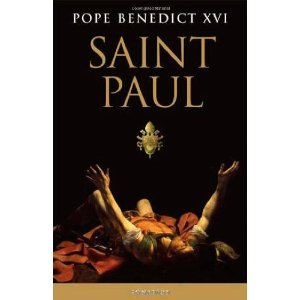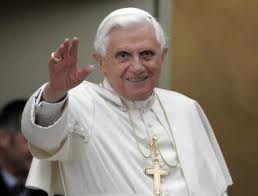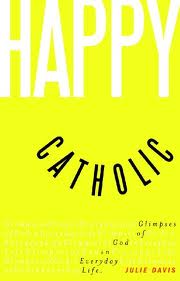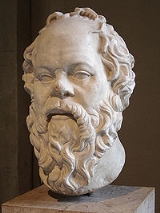“I am the bread of life; he who comes to me shall not hunger“
[powerpress feed=”daily-scripture”]
an excerpt from today’s reflection by Don Schwager: 
Do you hunger for the bread of life? The Jews had always regarded the mana in the wilderness as the bread of God (Psalm 78:24, Exodus 16:15). There was a strong Rabbinic belief that when the Messiah came he would give manna from heaven. This was the supreme work of Moses. Now the Jewish leaders were demanding that Jesus produce manna from heaven as proof to his claim to be the Messiah. Jesus responds by telling them that it was not Moses who gave the manna, but God. And the manna given to Moses and the people was not the real bread from heaven, but only a symbol of the bread to come.
Jesus then makes the claim which only God can make: I am the bread of life. The bread which Jesus offers is none else than the very life of God. This is the true bread which can truly satisfy the hunger in our hearts. The manna from heaven prefigured the superabundance of the unique bread of the Eucharist or Lord’s Supper which Jesus gave to his disciples on the eve of his sacrifice. The manna in the wilderness sustained the Israelites on their journey to the Promised Land. It could not produce eternal life for the Israelites. The bread which Jesus offers his disciples sustains us not only on our journey to the heavenly paradise, it gives us the abundant supernatural life of God which sustains us both now and for all eternity. When we receive from the Lord’s table we unite ourselves to Jesus Christ, who makes us sharers in his body and blood and partakers of his divine life. Ignatius of Antioch (35-107 A.D.) calls it the “one bread that provides the medicine of immortality, the antidote for death, and the food that makes us live for ever in Jesus Christ” (Ad Eph. 20,2). This supernatural food is healing for both body and soul and strength for our journey heavenward. Do you hunger for God and for the food which produces everlasting life?
“Lord Jesus Christ, you are the bread of life. You alone can satisfy the hunger in my heart. May I always find in you, the true bread from heaven, the source of life and nourishment I need to sustain me on my journey to the promised land of heaven.”
for the full reflection visit : Daily Reading and Meditation
Tags: catholic, catholic podcast, catholic prayer, cathollc spirituality, don schwager, gospel of john, jesus christ, manna from heaven
This entry was posted on Tuesday, May 10th, 2011 at 12:01 am
You can follow any responses to this entry through the RSS 2.0 feed.
Is Jesus Calling? A Spiritual Guide to Discerning Your Vocational Call with Fr. Paul Hoesing – episode 5: 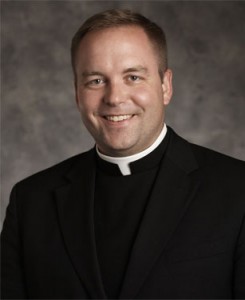 The Sixth Spiritual Lesson: Your fear is from the spirit against Christ. “God does not reveal himself through fear, pressure or confusion. Â This where the spirit against Christ reveals himself.”
The Sixth Spiritual Lesson: Your fear is from the spirit against Christ. “God does not reveal himself through fear, pressure or confusion. Â This where the spirit against Christ reveals himself.”
Questions: What are your ideas and images of god the Father and how do they differ from what Jesus teaches us about the Father?  Do you see the Father as someone who pressures you to do things?  Where does fear drive your relationship with the Father?  Recall your latest experience of peace, stillness, clarity and gratitude in God and believe that that is how the Father draws you?
[powerpress feed]
The Seventh Spiritual Lesson: God’s will is found in your will when you are in Christ. “God’s will, His desire for you, is not out there somwhere! Â It is found in your own desire when you are in Christ! Â That is the will of God for you!”
Questions: Does the thought of the priesthood come into your thoughts, feelings and desires when you are experiencing the peaceful presence of God?
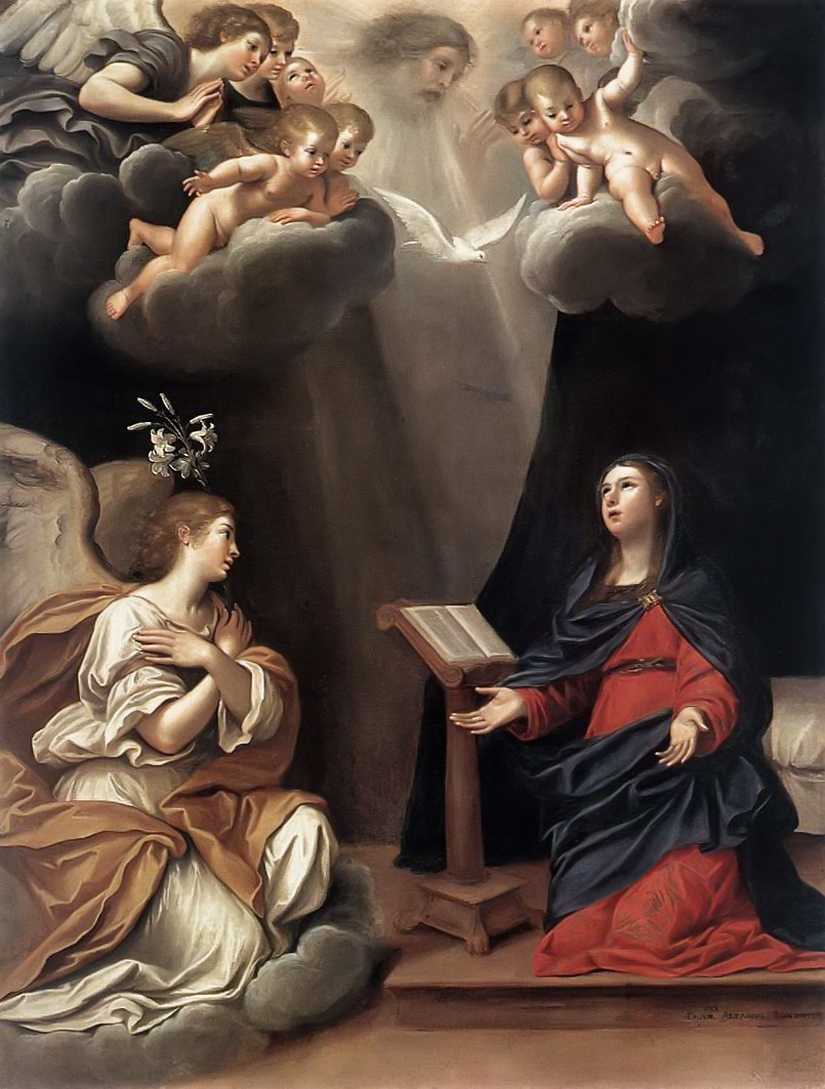 Based on “Is Jesus Calling You To Be A Catholic Priest: A helpful guide”, published by National Conference of Diocesan Vocation Director.
Based on “Is Jesus Calling You To Be A Catholic Priest: A helpful guide”, published by National Conference of Diocesan Vocation Director.
Fr. Paul Hoesing serves as the Vocation Director for the Archdiocese of Omaha, NE.
Check out “For Your Vocation.org“
Tags: archdiocese of omaha, catholic, catholic podcast, catholic prayer, catholic priest, cathollc spirituality, discernment, married life, Paul Hoesing, priesthood, religious life, spiritual guide, Spiritual Lesson, vocation director
This entry was posted on Monday, May 9th, 2011 at 2:49 pm
You can follow any responses to this entry through the RSS 2.0 feed.
Part 2…It just gets better when discussing our Holy Father’s teachings with Mark Brumley! It’s hard to find an equal to our Holy Father when you combine his gifts and talents as a theologian and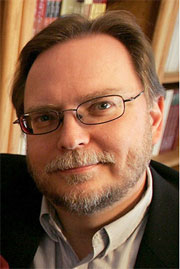 biblical scholar! As  a profound teacher and spiritual leader,  Pope Benedict XVI, through his Wednesday audience catechesis,  brings us the life and  legacy of St. Paul.  Mark Brumley joins us once again to discuss the richness of this work and offers us insights on this extraordinary saint.  Warning: Mark will inspire you to race out and pick up a copy (you’ll be so glad you did).
biblical scholar! As  a profound teacher and spiritual leader,  Pope Benedict XVI, through his Wednesday audience catechesis,  brings us the life and  legacy of St. Paul.  Mark Brumley joins us once again to discuss the richness of this work and offers us insights on this extraordinary saint.  Warning: Mark will inspire you to race out and pick up a copy (you’ll be so glad you did).
[powerpress]
Check out more on the book here
Tags: catholic, catholic podcast, catholic prayer, cathollc spirituality, mark brumley, pope benedict xvi
This entry was posted on Monday, May 9th, 2011 at 10:08 am
You can follow any responses to this entry through the RSS 2.0 feed.
Part 1…It’s hard to find an equal to our Holy Father when you combine his gifts and talents as a theologian and biblical scholar! As  a profound teacher and spiritual leader,  Pope Benedict XVI, through his Wednesday audience catechesis,  brings us the life and  legacy of St. Paul.  Mark Brumley joins us once again to discuss the richness of this work and offers us insights on this extraordinary saint.  Warning: Mark will inspire you to race out and pick up a copy (you’ll be so glad you did).
biblical scholar! As  a profound teacher and spiritual leader,  Pope Benedict XVI, through his Wednesday audience catechesis,  brings us the life and  legacy of St. Paul.  Mark Brumley joins us once again to discuss the richness of this work and offers us insights on this extraordinary saint.  Warning: Mark will inspire you to race out and pick up a copy (you’ll be so glad you did).
[powerpress]
Check out more on the book here
Tags: biblical scholar, catholic, catholic podcast, catholic prayer, cathollc spirituality, mark brumley, pope benedict xvi
This entry was posted on Monday, May 9th, 2011 at 9:08 am
You can follow any responses to this entry through the RSS 2.0 feed.
Episode 9- Regnum Novum: Bringing forth the New Evangelization through Catholic Social Teaching with Omar Guiterrez – Value 5 The Common Good, Universal Destination of Goods, Subsidiarity, Participation, Solidarity part 3
– Value 5 The Common Good, Universal Destination of Goods, Subsidiarity, Participation, Solidarity part 3
[powerpress]
These are the five principles laid out in the Compendium of the Social Doctrine of the Church. If we understand these principles, then the work of the Revolution can begin. We are made now for a New Kingdom with Christ as our King in all things. Let us discover this place together, and make the devil cringe and know the suffering of defeat. “Love”
Discerning Hearts is blessed to present Omar F. A. Guiterrez, M.A. , Special Assistant to Archbishop George Lucas of the Archdiocese of Omaha, in a groundbreaking series which breaks open the heart of Catholic Social Doctrine.
We encourage you to visit “Regnum Novum – A New Kingdom: A Revolution” Omar Guiterrez’s blog site
 We live at a very special time. The confluence of many things has brought forth the clear need to be able to articulate the Social Teaching of the Catholic Church in a way that is accessible and applicable. This is not to be an effort where high-minded theories are to be bandied about. Rather, this is a time of opportunity wherein we can apply the Social Doctrine to the concrete so as to bring about a New Kingdom, a Revolution. – Omar G. from Regnum Novum
We live at a very special time. The confluence of many things has brought forth the clear need to be able to articulate the Social Teaching of the Catholic Church in a way that is accessible and applicable. This is not to be an effort where high-minded theories are to be bandied about. Rather, this is a time of opportunity wherein we can apply the Social Doctrine to the concrete so as to bring about a New Kingdom, a Revolution. – Omar G. from Regnum Novum
From episode 9… Point 5: The Common Good, Universal Destination of Goods, Subsidiarity, Participation, Solidarity
These are the five principles laid out in the Compendium of the Social Doctrine of the Church. If we understand these principles, then the work of the Revolution can begin. We are made now for a New Kingdom with Christ as our King in all things. Let us discover this place together, and make the devil cringe and know the suffering of defeat.
In this episode we focus on “Subsidiarity”.
Also visit Omar’s “Discerning Hearts” page Catholic Social Teaching 101
Tags: archdiocese of omaha, catholic, catholic podcast, catholic prayer, catholic social doctrine, cathollc spirituality, compendium of the social doctrine of the church, new evangelization, social teaching of the catholic church, Subsidiarity
This entry was posted on Monday, May 9th, 2011 at 12:07 am
You can follow any responses to this entry through the RSS 2.0 feed.
“Doing the works of God“
[powerpress feed=”daily-scripture”]
an excerpt from today’s reflection by Don Schwager: 
What do you most hunger for – wealth, peace, health, love, the good life? Jesus addressed this issue with those who sought him after the miracle of the multiplication of the loaves. Were they simply hungry for things which satisfy the body or for that which satisfies the heart and soul? Jesus echoes the question posed by the prophet Isaiah: “Why do you spend your money for that which is not bread, and your labor for that which does not satisfy” (Isaiah 55:2)? There are two kinds of hunger – physical and spiritual. Only God can satisfy the hunger in our heart and soul – the hunger for truth, for life, and for love.
Jesus also spoke about the works of God and what we must do to be doing the works of God, namely to believe in God’s Son whom he has sent into the world. Jesus offers a new relationship with God which issues in a new kind of life: A life of love and service, and the forgiveness of others which corresponds to God’s mercy and kindness; a life of holiness and purity which corresponds to God’s holiness; and a life of submission and trust which corresponds to the wisdom of God. This is the work which Jesus directs us to and enables us to perform in the power of the Holy Spirit. Do you hunger for the bread which comes down from heaven and thirst for the words of everlasting life?
“Lord Jesus, you alone can satisfy the deepest longing and hunger in our hearts. May I always hunger for the imperishable bread, that I may be satisfied in you alone as the True Bread of Heaven. Nourish and strengthen me that I may serve you with great joy, generosity, and zeal all the days of my life”
for the full reflection visit : Daily Reading and Meditation
Tags: catholic, catholic podcast, catholic prayer, cathollc spirituality, don schwager, gospel of john
This entry was posted on Monday, May 9th, 2011 at 12:06 am
You can follow any responses to this entry through the RSS 2.0 feed.
Tags: catholic, catholic podcast, catholic prayer, cathollc spirituality, immaculate heart of mary
This entry was posted on Saturday, May 7th, 2011 at 7:42 am
You can follow any responses to this entry through the RSS 2.0 feed.
What a joy to talk with Julie Davis, not just “a” happy Catholic, but “the” Happy Catholic!  Julie is the creator of one of the most interesting sites in the blogosphere. Â Her insights, musings and all around thought-filled ponderings on everything from Alice Cooper to St. John Vianney make her must reading for anyone living in today’s culture…pop or otherwise. Â Julie has taken some of the best from her blog, along with a little more, and complied it in “Happy Catholic: Glimpses of God in Everyday Life”.
Julie is the creator of one of the most interesting sites in the blogosphere. Â Her insights, musings and all around thought-filled ponderings on everything from Alice Cooper to St. John Vianney make her must reading for anyone living in today’s culture…pop or otherwise. Â Julie has taken some of the best from her blog, along with a little more, and complied it in “Happy Catholic: Glimpses of God in Everyday Life”.
Check out Julie’s book here
Be sure to visit Julie’s blog  “Happy Catholic”
[powerpress]
Tags: Alice Cooper, catholic, catholic podcast, catholic prayer, cathollc spirituality, happy catholic, Happy Catholic Julie, John Vianney, joy, julie davis, servant books
This entry was posted on Friday, May 6th, 2011 at 10:25 am
You can follow any responses to this entry through the RSS 2.0 feed.
“He who believes in the Son has eternal life”
[powerpress feed=”daily-scripture”]
an excerpt from today’s reflection by Don Schwager: 
Jesus makes a claim only God can make: He is the true bread of heaven that can satisfy the deepest hunger we experience. The sign of the multiplication of the loaves when the Lord says the blessing, breaks and distributes through his disciples prefigures the superabundance of the unique bread of his Eucharist or Lord’s Supper. When we receive from the Lord’s table we unite ourselves to Jesus Christ, who makes us sharers in his body and blood. Ignatius of Antioch (35-107 A.D.) calls it the “one bread that provides the medicine of immortality, the antidote for death, and the food that makes us live for ever in Jesus Christ” (Ad Eph. 20,2). This supernatural food is healing for both body and soul and strength for our journey heavenward. When you approach the Table of the Lord, what do you expect to receive? Healing, pardon, comfort, and rest for your soul? The Lord has much more for us, more than we can ask or imagine. The principal fruit of receiving the Eucharist is an intimate union with Christ. As bodily nourishment restores lost strength, so the Eucharist strengthens us in charity and enables us to break with disordered attachments to creatures and to be more firmly rooted in the love of Christ. Do you hunger for the “bread of life”?
The feeding of the five thousand shows the remarkable generosity of God and his great kindness towards us. When God gives, he gives abundantly. He gives more than we need for ourselves that we may have something to share with others, especially those who lack what they need. God takes the little we have and multiplies it for the good of others. Do you trust in God’s provision for you and do you share freely with others, especially those who lack?
“Lord Jesus, you satisfy the deepest longing of our heart and you feed us with the finest of wheat (Psalm 81:16). Fill me with gratitude and give me a generous heart that I may freely share with others what you have given to me.”
for the full reflection visit : Daily Reading and Meditation
Tags: catholic, catholic podcast, catholic prayer, cathollc spirituality, don schwager, gospel of john
This entry was posted on Friday, May 6th, 2011 at 12:04 am
You can follow any responses to this entry through the RSS 2.0 feed.
Episode 18 -The Way of Mystery: The Eucharist and Moral Living – The Final installment of the series. The challenge of living the moral life and the gift of grace from the sacrament of the Eucharist.
– The Final installment of the series. The challenge of living the moral life and the gift of grace from the sacrament of the Eucharist.
[powerpress]
Deacon James Keating, PhD, the director of Theological Formation for the Institute for Priestly Formation, located at Creighton University, in Omaha, is making available to â€Discerning Hearts†and all who listen, his series of programs entitled “The Way of Mysteryâ€.
 The Vatican II documents remind us that the spiritual journey is not made in a vacuum, that God has chosen to save us, not individually, but as The People of God. The Eucharist must help Christians to make their choices by discerning out of Christ’s paschal mystery. For this process to take place, however, Christians must first understand how the Eucharist puts them in touch with Christ’s passion, death, and resurrection, and what concrete implications being in touch with this mystery has for their daily lives.
The Vatican II documents remind us that the spiritual journey is not made in a vacuum, that God has chosen to save us, not individually, but as The People of God. The Eucharist must help Christians to make their choices by discerning out of Christ’s paschal mystery. For this process to take place, however, Christians must first understand how the Eucharist puts them in touch with Christ’s passion, death, and resurrection, and what concrete implications being in touch with this mystery has for their daily lives.
For more information on the “Institute of Priestly Formation†and for other material available by Deacon Keating, just click here
Don’t forget to pickup a copy of “Communion with Christ†, it is one of the best audio sets on prayer…ever!
Check out Deacon Keating’s “Discerning Heart†page
Tags: catholic, catholic podcast, catholic prayer, cathollc spirituality, creighton university, Deacon James Keating, institute for priestly formation, james keating, paschal mystery, sacrament of the eucharist, the eucharist, theological formation
This entry was posted on Thursday, May 5th, 2011 at 2:26 pm
You can follow any responses to this entry through the RSS 2.0 feed.
“He who believes in the Son has eternal life”
[powerpress feed=”daily-scripture”]
an excerpt from today’s reflection by Don Schwager: 
God’s truth has consequences and he gives us the freedom to choose how we will respond. The choice he gives us has eternal consequences – everlasting life or everlasting death. God challenged his people in the Old Covenant: “See I have set before you this day life and good, death and evil. …I call heaven and earth to witness against you this day, that I have set before you life and death, blessing and curse; therefore choose life, that you may live, loving the Lord your God, obeying his voice, and cleaving to him” (Deuteronomy 30:15-20). And he issues the same challenge to the people of the New Covenant today. Do you weigh the consequences of your choices? Do they lead you towards life or towards death? If you choose to obey God’s voice and to do his will, then you will know and experience that life which comes from God himself. If you choose to follow your own way apart from God and his will, then you choose for death – a spiritual death which poisons and then kills the soul until there is nothing left but an empty person devoid of love, truth, goodness, purity, peace, and joy. Do your choices lead you towards God or away from God?
“Lord Jesus Christ, let your Holy Spirit fill me and transform my heart and mind that I may choose life – abundant life in you and with you. And give me the courage and strength to always discern good from evil and to reject everything that is false and contrary to your holy will.”
for the full reflection visit : Daily Reading and Meditation
Tags: catholic, catholic podcast, catholic prayer, cathollc spirituality
This entry was posted on Thursday, May 5th, 2011 at 12:35 am
You can follow any responses to this entry through the RSS 2.0 feed.
Here is the This is the English translation of the extended remarks of the Holy Father, Â found on the Vatican website, from his audience on May 4 on
“The man in prayer”
Dear brothers and sisters,
Today I would like to begin a new series of Catecheses. After the series on the Fathers of the Church, on the great theologians of the Middle Ages and on great women, I would now like to choose a topic that is dear to all our hearts: it is the theme of prayer, and especially Christian prayer, the prayer, that is, which Jesus taught and which the Church continues to teach us. It is in fact in Jesus that man becomes able to approach God in the depth and intimacy of the relationship of fatherhood and sonship. Together with the first disciples, let us now turn with humble trust to the Teacher and ask him: “Lord, teach us to pray†(Lk 11:1).
In the upcoming Catechesis, in comparing Sacred Scripture, the great tradition of the Fathers of the Church, of the Teachers of spirituality and of the Liturgy, let us learn to live our relationship with the Lord, even more intensely as it were at a “school of prayerâ€.
Because we know that prayer can not be taken for granted: we must learn to pray, as if gaining back this art, even those who are very advanced in the spiritual life always feel the need to get to school to learn to Jesus pray with authenticity. We receive the first lesson from the Lord through His example. The Gospels describe Jesus in intimate and ongoing dialogue with the Father is a deep communion of the one who came into the world not to do his will, but the Father who sent him for the salvation of man.
In this first catechesis, as an introduction, I would like to propose some examples of prayer in ancient cultures, as noted, almost always and everywhere have turned to God
I shall start with ancient Egypt, as an example. Here a blind man, asking the divinity to restore his sight, testifies to something universally human. This is a pure and simple prayer of petition by someone who is suffering. This man prays: “My heart longs to see you…. You who made me see the darkness, create light for me, so that I may see you! Bend your beloved face over me†(A. Barucq — F. Daumas, Hymnes et prières de l’Egypte ancienne, Paris 1980). That I may see you; this is the essence of the prayer!
In the religions of Mesopotamia an arcane, paralyzing sense of guilt predominated, but which was not devoid of the hope of redemption and liberation on God’s part. We may thus appreciate this entreaty by a believer of those ancient cultures, formulated in these words: “O God who are indulgent even in the greatest sin, absolve me from my sin…. Look, O Lord at your tired servant and blow your breeze upon him: forgive him without delay. Alleviate your severe punishment. Freed from bonds, grant that I may breathe anew, break my chains, loosen the fetters that bind me†(M.-J. Seux, Hymnes et Prières aux Dieux de Babylone et d’Assyrie, Paris 1976). These are words that demonstrate how the human being, in his search for God, had intuited, if vaguely, on the one hand his own guilt and on the other, aspects of divine mercy and goodness.
In the pagan religion of ancient Greece, a very significant development may be seen: prayers, while still invoking divine help to obtain heavenly favours in every circumstance of daily life and to receive material benefits, gradually became orientated to more disinterested requests, which enabled the believer to deepen his or her relationship with God and to become a better person.
For example, the great philosopher Plato records a prayer of his teacher, Socrates, held to be one of the founders of Western thought. This was Socrates’ prayer: “Grant to me that I be made beautiful in my soul within, and that all external possessions be in harmony with my inner man. May I consider the wise man rich; and may I have such wealth as only the self-restrained man can bear or endure†(Plato, Phaedrus, English trans.: Loeb, Harold North Fowler). Rather than to possess plenty of money, he wanted above all to be beautiful within and wise.
In the Greek tragedies, sublime masterpieces of the literature of all time which still, after 25 centuries, are read, thought about and performed today, there is a content of prayer which expresses the desire to know God and to worship his majesty. One of these tragedies says: “O Earth’s Upbearer, thou whose throne is Earth, Who’er thou be, O past our finding out, Zeus, be thou Nature’s Law, or Mind of man, Thee I invoke; for, treading soundless paths, To Justice’ goal thou bringest all mortal things†(Euripedes, Trojan Women, 884-886, English trans.: Loeb, Arthur S. Way). God remains somewhat nebulous, nevertheless man knows this unknown god and prays to the one who guides the ways of the world.
Also among the Romans who made up that great Empire in which Christianity first came into being and spread, prayer, even if it is associated with a utilitarian conception and fundamentally associated with the request for divine protection of the life of the civil community, sometimes begins with invocations that are wonderful for the fervour of personal devotion that is transformed into praise and thanksgiving. In the second century A.D., Apuleius, an author of Roman Africa, attested to this. In his writings he expresses his contemporaries’ dissatisfaction with the traditional religion and the desire for a more authentic relationship with God. In his masterpiece, entitled Metamorphoses, a believer addresses these words to a goddess: “You are holy, you are in every epoch a saviour of the human species, you, in your generosity, always help mortals, offer to the wretch in travail the tender affection
of a mother. Neither a day nor a night nor even a second pass without you filling it with your benefits†(Apuleius of Madaura, Metamorphoses ix, 25).
In the same period the Emperor Marcus Aurelius — who was also a philosopher who reflected on the human condition — affirmed the need to pray in order to establish a fruitful cooperation between divine action and human action. He wrote in his Meditations: “Who told you that the gods do not help us also in what depends on us? So begin to pray to them and you will see†(Dictionnaire de Spiritualité xii/2, col. 2213).
This advice of the Emperor philosopher was effectively put into practice by innumerable generations prior to Christ, thereby demonstrating that human life without prayer, which opens our existence to the mystery God, lacks sense and direction.
Always expressed in every prayer, in fact, is the truth of the human creature who on the one hand experiences weakness and impoverishment, who therefore addresses his supplication to Heaven, and on the other is endowed with an extraordinary dignity, so that, in preparing to receive the divine Revelation, finds himself able to enter into communion with God.
Dear friends, in these examples of prayer of different epochs and civilizations emerge the human being’s awareness of his creatural condition and of his dependence on Another superior to him and the source of every good. The human being of all times prays because he cannot fail to wonder about the meaning of his life, which remains obscure and discomforting of it is not put in relations to the mystery of God and if his plan for the world.
Human life is a fabric woven of good and of evil, of undeserved suffering and of joy and beauty that spontaneously and irresistibly impel us to ask God for that light and that inner strength which support us on earth and reveal a hope beyond the boundaries of death.
The pagan religions remain an invocation which from the earth awaits a word from Heaven. One of the last great pagan philosophers, who lived fully in the Christian era, Proclus of Constantinople, gives a voice to this expectation, saying: “unknowable, no one contains you. All that we think belongs to you. Our evils and our good come from you, on you our every yearning depends, O Ineffable One, whom our souls feel present, raising to you a hymn of silence†(Hymni, ed. Vogt, Wiesbaden 1957, in Preghiere dell’umanità , op. cit., p. 61).
In the examples of prayer of the various cultures which we have considered, we can see a testimony of the religious dimension and of the desire for God engraved on the heart of every human being, which receives fulfilment and full expression in the Old and in the New Testament. The Revelation, is in fact purifying and brings to its fullness man’s original yearning for God, offering to him, in prayer, the possibility of a deeper relationship with the heavenly Father.
At the beginning of our journey in the “school of prayer†let us now ask the Lord to illumine our minds and hearts so that the relationship with him in prayer may be ever more intense, affectionate and constant. Once again, let us say to him: “Lord, teach us to pray†(Lk 11:1).
Tags: catholic, catholic podcast, catholic prayer, cathollc spirituality, christian prayer
This entry was posted on Wednesday, May 4th, 2011 at 2:33 pm
You can follow any responses to this entry through the RSS 2.0 feed.
“God so loved the world that he gave us his only Son”
[powerpress feed=”daily-scripture”]
an excerpt from today’s reflection by Don Schwager: 
Do you know the love which surpasses all else? A true lover holds nothing back but gives the best that can be offered, even everything in their possession for the beloved. God proved his love for us by giving us the best he had to offer – his only begotten Son who freely gave himself as an offering to God for our sake and as the atoning sacrifice for our sin and the sin of the world. Abraham’s willing sacrifice of his only son, Isaac prefigures the perfect offering and sacrifice of God’s beloved Son, our Lord Jesus Christ. This passage in the gospel of John tells us of the great breadth and width of God’s love. Not an excluding love for just a few or for a single nation, but a redemptive love that embraces the whole world, and a personal love for each and every individual whom God has created. God is a loving Father who cannot rest until his wandering children have returned home to him. Saint Augustine says, God loves each one of us as if there were only one of us to love. God gives us the freedom to choose whom and what we will love.
Jesus shows us the paradox of love and judgment. We can love the darkness of sin and unbelief or we can love the light of God’s truth, beauty, and goodness. If our love is guided by what is true, and good and beautiful then we will choose for God and love him above all else. What we love shows what we prefer. Do you love God above all else? Does he take first place in your life, in your thoughts, and actions?
“Lord Jesus Christ, your love is better than life itself. May your love consume and transform my life that I may desire you above all else. Help me to love what you love, to desire what you desire, and to reject what you reject”.
for the full reflection visit : Daily Reading and Meditation
Tags: catholic, catholic podcast, catholic prayer, cathollc spirituality, don schwager, gospel of john
This entry was posted on Wednesday, May 4th, 2011 at 1:34 pm
You can follow any responses to this entry through the RSS 2.0 feed.
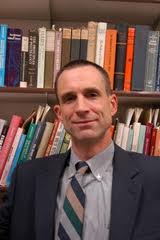 Episode 1 – What is Christian Apologetics? Who was St. Thomas Aquinas, his life, his times, and his contribution. What is “theology”? What is the “Summa”?
Episode 1 – What is Christian Apologetics? Who was St. Thomas Aquinas, his life, his times, and his contribution. What is “theology”? What is the “Summa”?
[powerpress]
 Question 1. article 1Â The nature and extent of sacred doctrine
Question 1. article 1Â The nature and extent of sacred doctrine
Whether, besides philosophy, any further doctrine is required?
Objection 1: It seems that, besides philosophical science, we have no need of any further knowledge. For man should not seek to know what is above reason: “Seek not the things that are too high for thee” (Ecclus. 3:22). But whatever is not above reason is fully treated of in philosophical science. Therefore any other knowledge besides philosophical science is superfluous.
Objection 2: Further, knowledge can be concerned only with being, for nothing can be known, save what is true; and all that is, is true. But everything that is, is treated of in philosophical science—even God Himself; so that there is a part of philosophy called theology, or the divine science, as Aristotle has proved (Metaph. vi). Therefore, besides philosophical science, there is no need of any further knowledge.
On the contrary, It is written (2 Tim. 3:16): “All Scripture, inspired of God is profitable to teach, to reprove, to correct, to instruct in justice.” Now Scripture, inspired of God, is no part of philosophical science, which has been built up by human reason. Therefore it is useful that besides philosophical science, there should be other knowledge, i.e. inspired of God.
I answer that, It was necessary for man’s salvation that there should be a knowledge revealed by God besides philosophical science built up by human reason. Firstly, indeed, because man is directed to God, as to an end that surpasses the grasp of his reason: “The eye hath not seen, O God, besides Thee, what things Thou hast prepared for them that wait for Thee” (Is. 66:4). But the end must first be known by men who are to direct their thoughts and actions to the end. Hence it was necessary for the salvation of man that certain truths which exceed human reason should be made known to him by divine revelation. Even as regards those truths about God which human reason could have discovered, it was necessary that man should be taught by a divine revelation; because the truth about God such as reason could discover, would only be known by a few, and that after a long time, and with the admixture of many errors. Whereas man’s whole salvation, which is in God, depends upon the knowledge of this truth. Therefore, in order that the salvation of men might be brought about more fitly and more surely, it was necessary that they should be taught divine truths by divine revelation. It was therefore necessary that besides philosophical science built up by reason, there should be a sacred science learned through revelation.
Reply to Objection 1: Although those things which are beyond man’s knowledge may not be sought for by man through his reason, nevertheless, once they are revealed by God, they must be accepted by faith. Hence the sacred text continues, “For many things are shown to thee above the understanding of man” (Ecclus. 3:25). And in this, the sacred science consists.
Reply to Objection 2: Sciences are differentiated according to the various means through which knowledge is obtained. For the astronomer and the physicist both may prove the same conclusion: that the earth, for instance, is round: the astronomer by means of mathematics (i.e. abstracting from matter), but the physicist by means of matter itself. Hence there is no reason why those things which may be learned from philosophical science, so far as they can be known by natural reason, may not also be taught us by another science so far as they fall within revelation. Hence theology included in sacred doctrine differs in kind from that theology which is part of philosophy.
For an online version of St. Thomas Aquinas’ “Summa” click here
“Christian Apologetics with Dr. R. R. Reno” explores numerous facets of faith and reason in the life of the Church and the world. Grounded on the work of giants, such as St. Thomas Aquinas, St. Bonaventure, Blessed John Newman, soon-to-be Blessed John Paul II, G. K. Chesterton, Blaise Paschal and Stephen Barr, Dr. Reno helps us to open our minds to make the journey to our hearts.
R. R. Reno is the editor at First Things: A Journal of Religion, Culture, and Public Life, and Professor of Theology, currently on leave from Creighton University. His theological work has been published in many academic journals. Essays and opinion pieces on religion, public life, contemporary culture, and current events have appeared in Commentary, and the Washington Post. In Fighting the Noonday Devil Reno suggests that putting ourselves at the disposal of what is real is what trains us for true piety. His other recent books include Genesis: Brazos Theological Commentary on the Bible and Sanctified Vision: An Introduction to Early Christian Interpretation of the Bible.
Tags: Blessed John Newman, catholic, catholic podcast, catholic prayer, cathollc spirituality, creighton university, faith, first things, r r reno, summa theologica, thomas aquinas, work
This entry was posted on Wednesday, May 4th, 2011 at 8:25 am
You can follow any responses to this entry through the RSS 2.0 feed.
While in Rome, I had the opportunity to speak with a very busy, but extraordinarily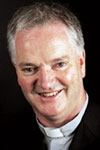 gracious, Mons. Paul Tighe who serves as the Secretary for The Pontifical Council for Social Communication. The Council was hosting a gathering of bloggers from around the world in order to begin a dialogue concerning the varied aspects of the new media, and in particular the role of the blogger in the new evangelization. This meeting was held on May 2 in Rome, the day after the beatification of Blessed John Paul II, the herald of this “New Evangelization”. What will this “New Evagnelization” look like in the light of technological advancements? How will the various forms of “traditional” media converge to effectively communicate the message? Who is the “Catholic blogger” and what is the hoped for behavior of the new evanglizer? How can those seeking find Truth on the internet? What (or better yet Who) is Truth? These questions and so many more are discussed with Mons Tighe in this special edition of “Inside the Pages”.
gracious, Mons. Paul Tighe who serves as the Secretary for The Pontifical Council for Social Communication. The Council was hosting a gathering of bloggers from around the world in order to begin a dialogue concerning the varied aspects of the new media, and in particular the role of the blogger in the new evangelization. This meeting was held on May 2 in Rome, the day after the beatification of Blessed John Paul II, the herald of this “New Evangelization”. What will this “New Evagnelization” look like in the light of technological advancements? How will the various forms of “traditional” media converge to effectively communicate the message? Who is the “Catholic blogger” and what is the hoped for behavior of the new evanglizer? How can those seeking find Truth on the internet? What (or better yet Who) is Truth? These questions and so many more are discussed with Mons Tighe in this special edition of “Inside the Pages”.
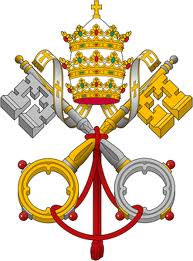 Learn more about the work of the Ponitfical Council for Social Communication at www.pccs.va
Learn more about the work of the Ponitfical Council for Social Communication at www.pccs.va
[powerpress]
Tags: blogger, catholic, catholic podcast, catholic prayer, cathollc spirituality, Mons Tighe, Monsignor Paul Tighe, New Evagnelization, new evangelization, Paul Tighe, pontifical council, Pontifical Council for Social Communication, Pontifical Council for Social Communications, Social Communication, social communications, work
This entry was posted on Wednesday, May 4th, 2011 at 6:12 am
You can follow any responses to this entry through the RSS 2.0 feed.

